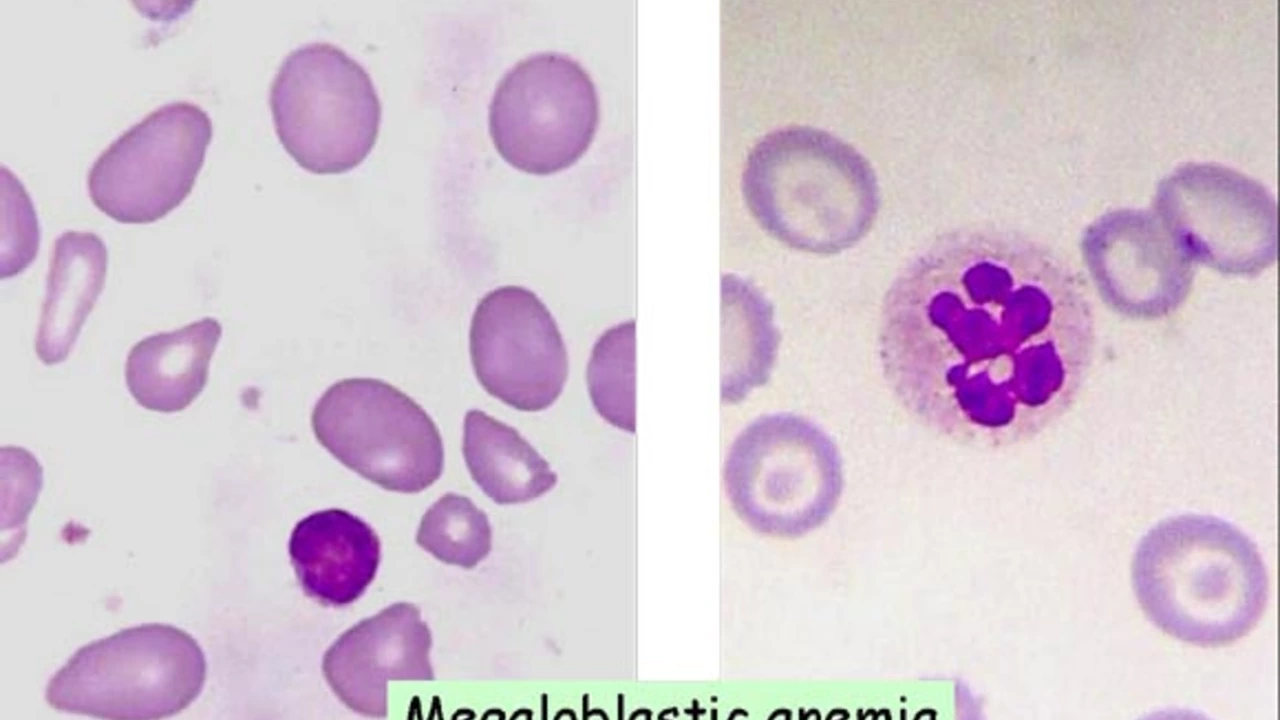Megaloblastic Anemia – What It Is and How to Deal With It
If you’ve ever felt unusually tired, had a sore tongue or noticed pale skin, megaloblastic anemia could be the hidden reason. It’s a type of anemia where your red blood cells grow too big and can’t carry oxygen properly. The condition usually pops up because your body lacks enough vitamin B12 or folate – two nutrients that help make healthy blood cells.
Why should you care? Because low energy, shortness of breath, and a shaky mind are not just “just feeling off.” They’re signals that your organs aren’t getting the oxygen they need. The good news is most cases are easy to spot and even easier to treat once you know what to look for.
Causes You Should Know
The two main culprits are vitamin B12 deficiency and folate (vitamin B9) shortage. B12 comes from animal foods like meat, eggs, and dairy, so vegans or people with absorption problems often run low. Folate is abundant in leafy greens, beans, and citrus, but alcohol misuse, certain medicines, or pregnancy can drain your stores quickly.
Other reasons include stomach surgery that removes the part where B12 binds, chronic gut disorders such as celiac disease, and some genetic conditions that block nutrient processing. Even a poor diet with lots of processed foods can tip the balance over time.
Quick Ways to Treat and Prevent
The fastest fix is usually a supplement. A doctor may give you B12 injections or high‑dose oral tablets, especially if your gut can’t absorb it well. For folate, a daily multivitamin with 400–800 µg of folic acid does the trick for most people.
Don’t forget food. Adding salmon, eggs, fortified cereals, spinach, lentils, and oranges to meals boosts both B12 and folate naturally. If you’re vegetarian or vegan, consider fortified plant milks and nutritional yeast for B12, and keep an eye on leafy greens for folate.
Regular blood tests are key. A simple CBC (complete blood count) can flag the large red cells, and a follow‑up test will show your B12 and folate levels. Keep these checks yearly if you have risk factors – it’s cheaper than dealing with chronic fatigue later.
Lifestyle tweaks help too. Limit alcohol, quit smoking, and manage stress because both can interfere with nutrient absorption. If you take medications like metformin or certain anti‑seizure drugs, ask your doctor about periodic B12 checks.
In short, megaloblastic anemia is a warning sign that your body’s missing vital vitamins. Spot the symptoms early, get tested, and fix it with supplements, smarter food choices, and regular checkups. Your energy levels will bounce back, and you’ll feel more like yourself again.

The Connection between Folic Acid Deficiency and Megaloblastic Anemia in Cancer Patients
Aug, 1 2023
